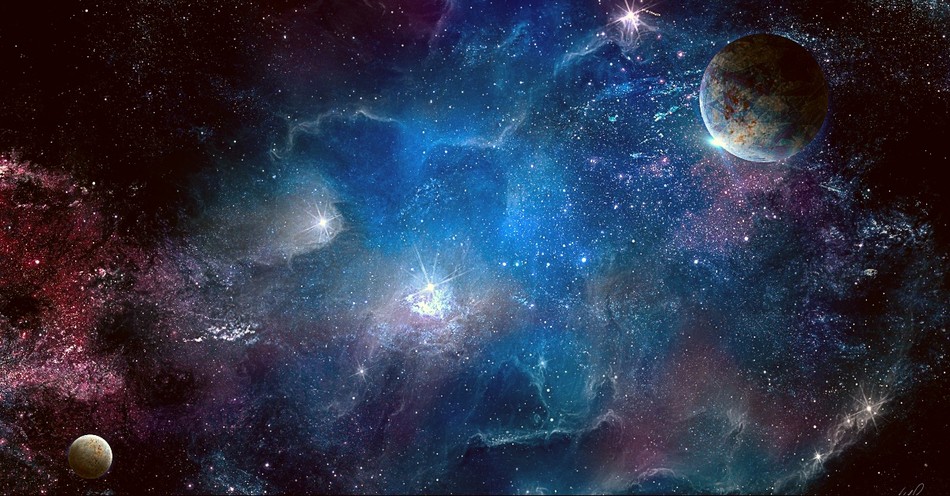In the middle of the 19th century, an archaeologist discovered fragments of multiple clay tablets in what is modern-day Iraq. Translated, the cuneiform writing on these and other tablets subsequently found revealed the “Enuma Elish,” the Babylonian account of the creation of the world.
The Enuma Elish starts with formless chaos and water. The waters divide into a god and a goddess, who have children who are also gods. War breaks out between mother and father, and between mother and children. Ultimately, the offspring of the first two gods create human beings to be their servants.
Other ancient cultures have strikingly similar creation stories. Egyptians believed multiple creation myths, but most also begin with chaos and water, out of which comes gods, war, and ultimately, human beings. The Genesis account, skeptics proclaim, is simply one of these accounts, and therefore should not be taken any more seriously than the others.
Too many Christians, even those who may not go as far as to call the Genesis account false, seem embarrassed by it. A purely naturalistic and neo-Darwinian account of human origins now dominates both the academy and the wider culture, and most Christians simply lack the confidence to engage the issue at all. So instead, they merely accept the claim that Genesis should be filed away under ancient creation myths with all the others.
Not only does this approach ignore the scientific doubts growing about these theories mistaken for fact and fail to take Jesus’ professed belief about the Genesis account seriously, it leaves unquestioned the assumed premise. Are the similarities between the biblical account of creation and other ancient accounts as obvious and conclusive as we are told?
C.S. Lewis didn’t think so. In his book Miracles, Lewis argued for the opposite conclusion. If multiple disparate cultures recorded similar stories of the world’s beginning, isn’t it possible these ancient peoples derived clues from the nature around them about the world’s actua lbeginning? In other words, if a story is true, we should expect multiple people in multiple places to discover it, and to muddy details along the way.
As an example, Lewis noted how the biblical account of the Incarnation, when God became man, followed a pattern similar to other ancient deities, especially those associated with agriculture. Noting that seeds fall to the ground, die, and then bear fruit, ancient tribes worshiped gods of seeds, fruit, and harvest. God became man, died, descended into burial, and then re-ascended into life and heaven. Does this mean the Jesus story plagiarized what Lewis called the “Corn-Kings” of ancient civilizations? Not at all.
The Hebrews throughout their history were being constantly headed off from the worship of Nature-gods not because the Nature-gods were in all respects unlike the God of Nature but because, at best, they were merely like, and it was the destiny of that nation to be turned away from likenesses to the thing itself.
Even more, if the similarities between ancient deities and creation myths do not disqualify the biblical accounts, what about the obvious differences?
In an excellent analysis in his new book Biblical Critical Theory, scholar Christopher Watkin rightfully concludes that the Genesis account stands apart as profoundly different from other creation myths:
Genesis 1, by contrast, spares us the violence and conflict. Indeed there is no one for God to be in conflict with, no rival to play the antagonist in his grand creation plan, stealing away the sun he puts in the sky or pulling up his newly created trees and plants. In contrast to other ancient creation myths, Genesis 1 is remarkably calm and ordered. No one gets hurt, no one loses a corporeal appendage, and no one dies. The universe is not created in war and through fighting but in peace and through speaking.
Not only is this account of creation not like the others, every claim it makes about the world holds up to human experience, even today. That’s one reason belief persists in the Genesis story, unlike the other ancient myths. A world born of violence and power inevitably leads to privileging violence and power above all else. The Genesis account explains the violence and power that plagues the world, but puts it in the larger context of a world made of order and peace, made b ya loving Creator. That’s not only a better story, it better reflects the world as we know and experience it.
This Breakpoint was co-authored by Maria Baer. For more resources to live like a Christian in this cultural moment, go to colsoncenter.org.
Publication date: January 31, 2023
Photo courtesy: ©iStock/Getty Images Plus/Margarita Balashova
John Stonestreet is President of the Colson Center for Christian Worldview, and radio host of BreakPoint, a daily national radio program providing thought-provoking commentaries on current events and life issues from a biblical worldview. John holds degrees from Trinity Evangelical Divinity School (IL) and Bryan College (TN), and is the co-author of Making Sense of Your World: A Biblical Worldview.
The views expressed in this commentary do not necessarily reflect those of CrosswalkHeadlines.
BreakPoint is a program of the Colson Center for Christian Worldview. BreakPoint commentaries offer incisive content people can't find anywhere else; content that cuts through the fog of relativism and the news cycle with truth and compassion. Founded by Chuck Colson (1931 – 2012) in 1991 as a daily radio broadcast, BreakPoint provides a Christian perspective on today's news and trends. Today, you can get it in written and a variety of audio formats: on the web, the radio, or your favorite podcast app on the go.









